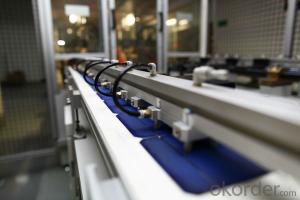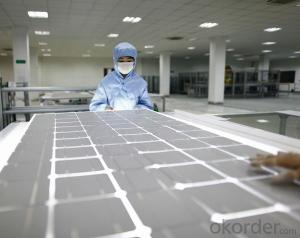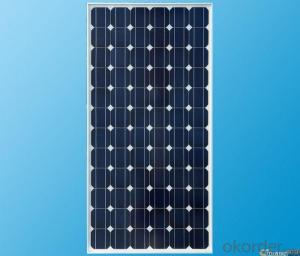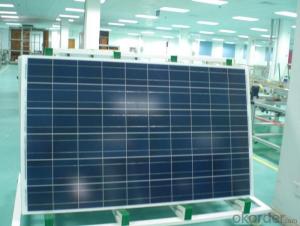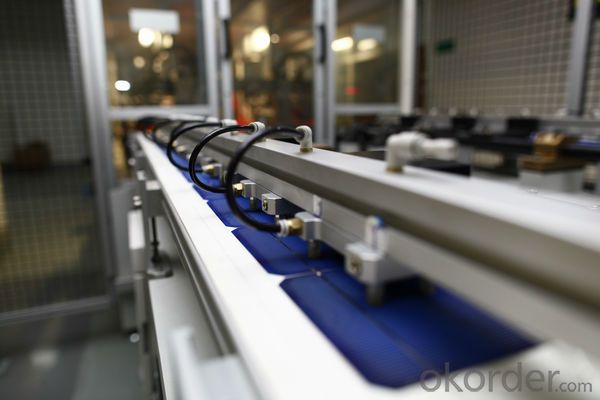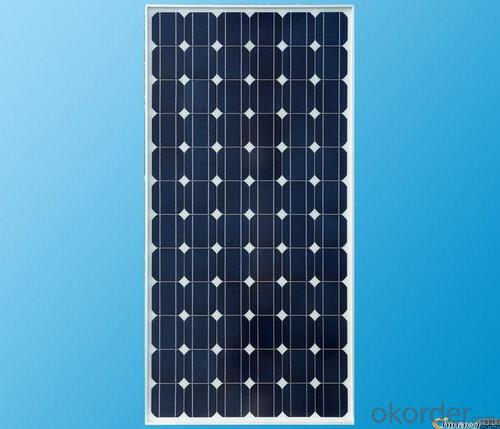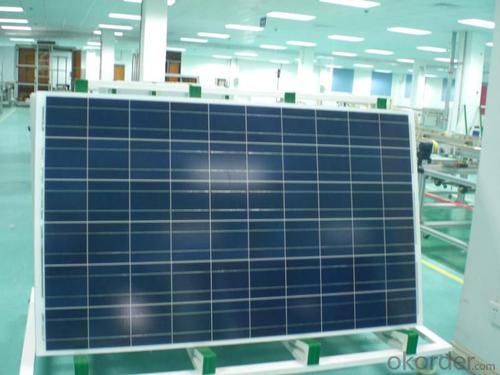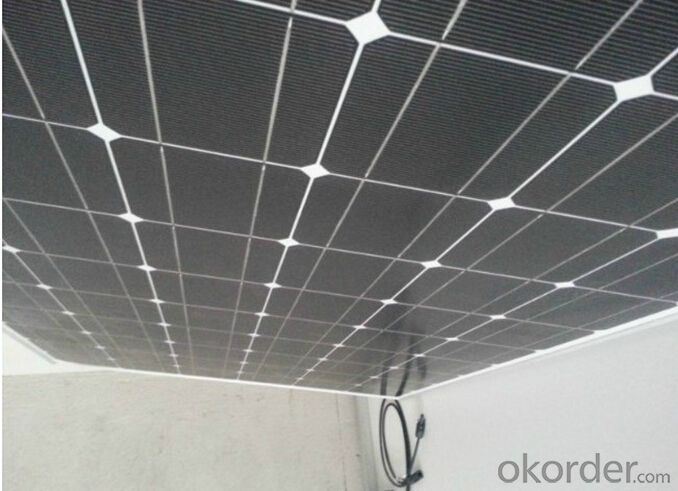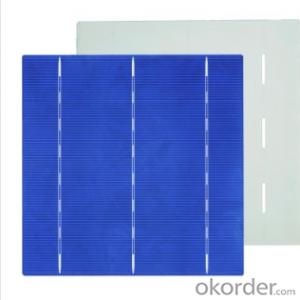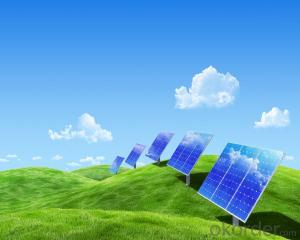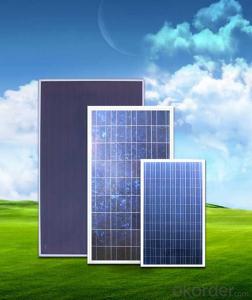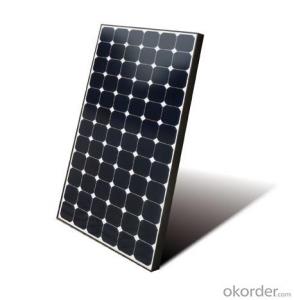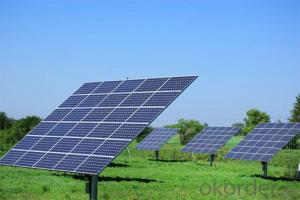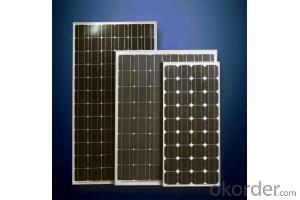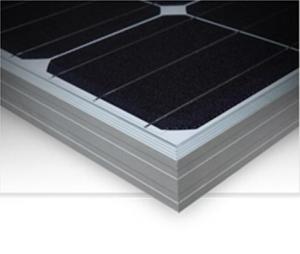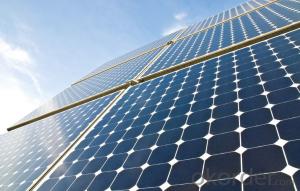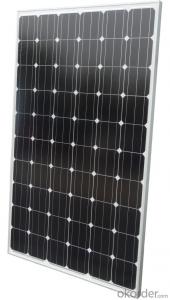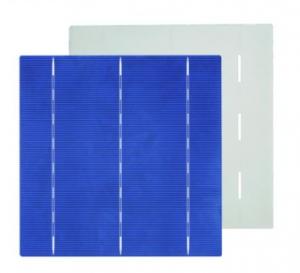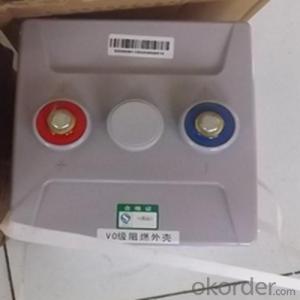Making Solar Cells:Powerful 230W 48V Monocrystalline Solar Module
- Loading Port:
- Shanghai
- Payment Terms:
- TT OR LC
- Min Order Qty:
- 11 watt
- Supply Capability:
- 1111111 watt/month
OKorder Service Pledge
OKorder Financial Service
You Might Also Like
1.Structure of Solar Module Description
The solar module is an off-gird solar power generator, designed to provide stable and reliable electricity to homes and communities without access to grid electricity or to those regions where are short of power or even without power. The solar module is convenient to move, easy to set-up with reliable performance, making it ideal for situations where emergency power is required. It is an ideal & reliable energy source for a wide variety of applications, ranging from lighting , radios, fans ,televisions ,computers ,refrigerator. The USB port is compatible with all 5V-USB charged devices. It can also act as a back-up power source during emergency situations.
2.Main Features of the Solar Module
1).High conversion efficiencies resulting in superior power output performance.
2).Outstanding power output even in low light or high temperature conditions
3).Optimized design for ease of soldering and lamination
4).Long-term stability,reliability and performance
3.Solar Module Images
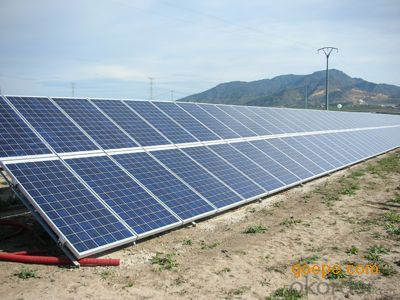
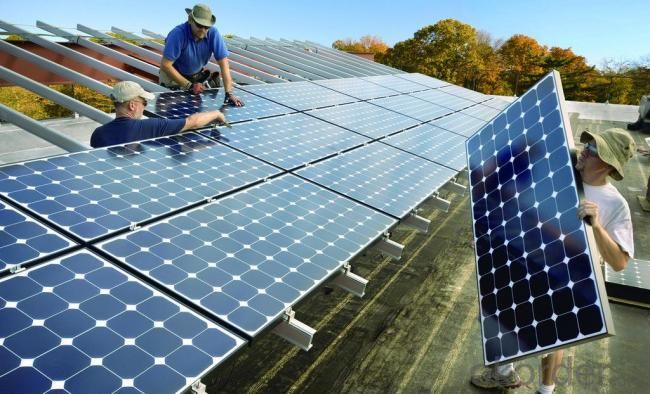
4.Solar Module Specification
1)High module conversion efficiency up to15.3% 2)25-year limited warranty on power output 3)TUV,UL,IEC61215,IEC61730,ISO,MCS,CEC
2) We offer you strongly competitive prices !
3) We offer the fastest shipping !
4) we can accept small order!
5) we design various of watt according to customer!
6) We have the best customer service team!
7) We have excellent manufacturer solar panel warranty policy !
Thanks for attention and hope to hear from you soon!
| Model Type | GY230M-60 | |||||
| Model power(Pmax) | 230WP | |||||
| Model power Voltage(Vmp) | 29.6v | |||||
| Model power Current(Imp) | 7.82A | |||||
| Open circuit voltage(Voc) | 36.9V | |||||
| Short circuit current(Isc) | 8.26A | |||||
| NO.of Diode | 6 | |||||
| Maximum System Voltage | 1000V(TUV)DC | |||||
| Maximum Series Fuse Rating | 10A | |||||
| Power Tolerance | ±3% | |||||
| Temperature Coefficients of Pmax | -0.44%/°C | |||||
| Temperature Coefficients of Voc | -0.33%/°C | |||||
| Temperature Coefficients of Isc | -0.04%/°C | |||||
| Nominal Operating Cell Temperature(NOCT) | 47±2°C | |||||
| STC:Irradiance 1000W/m2 Module Temperature 25°C AM=1.5 | ||||||
CELL TYPE | 156*156mm MONO SOLAR CELL |
No.of Cells | 60 |
Dimensions | 1640*992*40/45mm |
Weight | 20.5KG |
Front Glass | 3.2mm High transmission,lowlron,tempered Glass |
Frame | Anodized Aluminium Alloy |
Junction Box | IP65 Rated |
Output Cabies | TUV |1*4.0mm2| Length 900mm |
5.FAQ of Solar Module
1). Q: Are you a factory or trading company?
A: We are a factory.
2). Q: Where is your factory located? How can I visit there?
A: Our factory is located in Jiangyin, Jiangsu, China, near Shanghai. You are warmly welcomed to visit us!
3). Q: How can I get some samples?
A: Please connect me for samples
4). Q: Can the price be cheaper?
A: Of course, you will be offered a good discount for big amount.
- Q: What is the maintenance required for solar cells?
- The maintenance required for solar cells is typically minimal. It involves regular cleaning of the solar panels to remove any dust or debris that may accumulate and potentially reduce their efficiency. Additionally, periodic inspections are recommended to detect any signs of damage or wear, such as cracked glass or loose connections, which should be repaired promptly. Overall, proper maintenance ensures optimal performance and longevity of solar cells.
- Q: Can solar cells be used in recreational vehicles or boats?
- Yes, solar cells can be used in recreational vehicles or boats to generate electricity, making them a sustainable and efficient power source for these vehicles.
- Q: What is the difference between solar cells and solar panels?
- Solar cells and solar panels are both components used in harnessing solar energy, but they have distinct differences. A solar cell refers to a single unit that converts sunlight directly into electricity through the photovoltaic effect. On the other hand, a solar panel is composed of multiple interconnected solar cells and serves as a larger unit that generates a higher amount of electricity. In summary, solar cells are individual units, while solar panels are a collection of these cells working together to generate more power.
- Q: Can solar cells be used to power large-scale industrial facilities?
- Yes, solar cells can indeed be used to power large-scale industrial facilities. With advancements in solar technology and the availability of more efficient and cost-effective solar panels, industrial facilities can harness the power of the sun to meet their energy needs. Large-scale solar installations, such as solar farms or rooftop arrays, can generate substantial amounts of electricity, making them a viable option for powering industrial operations. Additionally, integrating solar power into industrial facilities can reduce greenhouse gas emissions, lower energy costs, and provide a more sustainable and reliable energy source.
- Q: How do solar cells perform in dry desert conditions?
- Solar cells perform exceptionally well in dry desert conditions. The intense sunlight and lack of humidity in desert environments create optimal conditions for the generation of solar energy. The absence of clouds and minimal air pollution allows solar cells to efficiently convert sunlight into electricity, resulting in higher energy output. Additionally, the heat in desert regions can increase the efficiency of solar cells, as their performance typically improves with higher temperatures. Therefore, solar cells are highly effective and efficient in dry desert conditions.
- Q: How do solar cells impact job creation?
- Solar cells impact job creation by creating a demand for skilled workers in the solar industry. As the adoption of solar energy grows, more jobs are created in manufacturing, installation, maintenance, and research and development of solar cells. This not only helps stimulate the economy but also provides employment opportunities for individuals in a rapidly expanding sector.
- Q: What is the impact of solar cells on reducing air pollution from power generation?
- Solar cells have a significant impact on reducing air pollution from power generation. By harnessing the sun's energy, solar cells produce clean electricity without emitting harmful pollutants like carbon dioxide and other greenhouse gases. This reduces the reliance on fossil fuels, which are major contributors to air pollution and climate change. Additionally, solar cells help to decrease the release of other harmful pollutants, such as sulfur dioxide and nitrogen oxides, which are commonly emitted during traditional power generation. Overall, the widespread adoption of solar cells can greatly contribute to improving air quality and mitigating the adverse effects of power generation on the environment.
- Q: Solar water heater plate can be directly converted into electrical energy?
- Modern solar thermal technology combines sunlight and uses its energy to generate hot water, steam and electricity. In addition to using the right technology to collect solar energy, buildings can also use the sun's light and heat, by adding the appropriate design Equipment, such as a giant south window or the use of building materials that absorb and slowly release the sun's heat.
- Q: Can solar cells generate electricity at night?
- No, solar cells cannot generate electricity at night. They require sunlight to produce electricity as they convert sunlight into electrical energy.
- Q: Can solar cells be used in space exploration?
- Yes, solar cells can be used in space exploration. Solar cells are commonly utilized in space missions to generate electrical power from sunlight, as they are an efficient and reliable source of energy in the vacuum environment of space. They have been employed in various spacecraft and satellites to power systems and instruments, including communication devices, scientific instruments, and propulsion systems. Solar cells are essential for prolonged missions in space, as they provide a sustainable and renewable source of energy.
Send your message to us
Making Solar Cells:Powerful 230W 48V Monocrystalline Solar Module
- Loading Port:
- Shanghai
- Payment Terms:
- TT OR LC
- Min Order Qty:
- 11 watt
- Supply Capability:
- 1111111 watt/month
OKorder Service Pledge
OKorder Financial Service
Similar products
Hot products
Hot Searches
Related keywords
